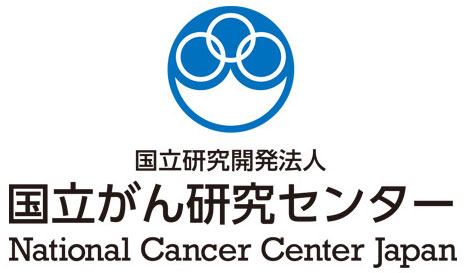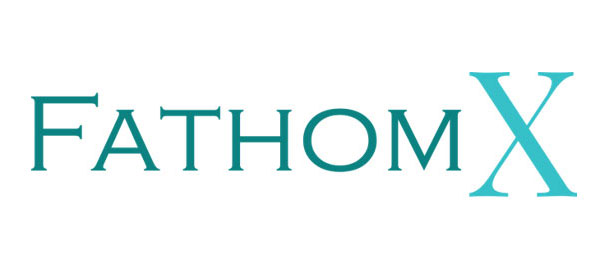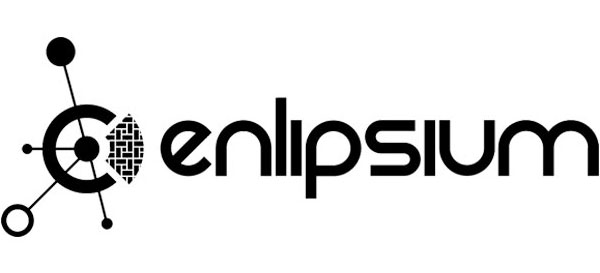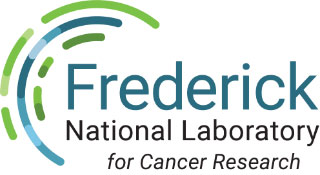-
Watch video (05:44)

Japan’s Cross-border Collaborations are Making a Difference in the Fight Against Cancer
The National Cancer Center (NCC) is a leading cancer research institute and hospital in Japan. NCC has been promoting industry-academia collaboration to discover the seeds of medical innovation from various institutions and companies in Japan and abroad, and to spread innovative drugs and treatments around the world. Overseas companies and institutions which are attracted to NCC's advanced cancer research and drug discovery platform as well as the mature Japanese medical market, are actively embarking on collaboration.
We interviewed three individuals from NCC and representatives from four overseas institutions and companies which have respectively signed joint research agreements with NCC about background of the international collaborations, and the significance of overseas institutions and companies entering the Japanese healthcare market.
Interviewees
- National Cancer Center: Dr. Hitoshi Nakagama, President of the NCC, Dr. Tatsuya Onishi, Dr. Akihiro Ohashi
- FathomX (Singapore): Stephen Lim, CEO
- Arjuna Therapeutics (Spain): Dr. Ross Breckenridge, CEO
- Enlipusium (Singapore): Yzhar Perry, CEO
- Frederick National Laboratory for Cancer Research (FNLCR, US): Dr. Eric Stahlberg, Director of the Cancer Data Science Initiative





- Collaboration
- 2021/10
- Biotechnology & Life Science
-
Singapore
-
USA
-
Spain
Update : 2023/01
Acceleratting Healthcare Innovation through International Collaboration
While medicine has made great strides in extending our lifespans and improving quality of life, as we live longer our risk of developing cancer in some form or another steadily increases, making it a growing factor in long-term health. This is especially true in nations with rapidly graying populations like Japan, where cancer has become the leading cause of death. The National Cancer Center (NCC) is a leading cancer research institute and hospital in Japan that has taken a central role in addressing this issue. The Japan External Trade Organization (JETRO) supports the establishment of international collaboration systems to accelerate new innovations through partnering support for NCC and other Japanese medical and pharmaceutical companies. In 2021, NCC and JETRO signed a comprehensive cooperation agreement in 2021. Under this agreement, JETRO connects NCC physicians with innovative overseas companies and institutes on the forefront of cancer research, resulting in a cross-border research and business partnership that will help solving health challenges.
“In the past, drug and treatment development was based on cooperation with a single, large-scale company,” explains Dr. Hitoshi Nakagama, President of the NCC, “more recently, however, the seeds of medical innovation have come from multiple institutions and companies. Collaborations now need an international perspective to accelerate development, which is why we are working together with JETRO.”

Dr. Hitoshi Nakagama, President of the NCC
Earlier Detection Means Better Prognoses
Early detection of cancer is one of the most important factors in maximizing the chance of long-term survival. This is especially true with cancers such as breast cancer, in which most cases are still detected through cancer screening. Currently, radiologists must examine each mammography X-ray, a slow and difficult process as they avoid missing potential tumors or prescribing surgeries that turn out to be unnecessary. Singapore-based FathomX has been developing artificial intelligence systems to detect early tumor development and to take over some of the functions that used to require a radiologist’s time. “Detecting tumors is a very taxing job for the radiologist,” says FathomX CEO Stephen Lim, “so what our AI tool does is provide a heat map that identifies the areas of concern and provides a probability score to estimate the chance of cancer.” FathomX is, working together with NCC and other hospitals in Japan, as well as medical facilities in other nations throughout the Asia-Pacific. By testing their AI tools with as wide a patient base as possible to improve accuracy and efficacy, NCC hope to have it ready for general use. “NCC is committed to provide the best possible cancer treatment and care,” says Mr. Lim, “which is in line with our objectives of introduction our technology to the world. Hence, we knew that NCC will be a good collaboration partner.”

Stephen Lim, CEO
From NCC’s perspective, the collaboration has the potential to produce positive results not just in enhancing their own diagnostic results, but in improving the state of breast cancer diagnosis as a whole. “While we were impressed with FathomX’s technological capabilities, and were happy to collaborate with them as their research is in line with our philosophy,” says Dr. Tatsuya Onishi of NCC, “I also think that the development of medical devices should not be based solely on Japanese data, as this risks a Galapagos effect [in which technologies are so over-specialized to the needs of a particular market that they cannot be used elsewhere]. From global perspective, Japan may not be a very large market, but through research projects like this we can use Japanese data to improve global technological capabilities. This is a great benefit for us.”

Dr. Tatsuya Onishi
Treating Cancers Previously Thought Untreatable
Spain-based Arjuna Therapeutics is exploring the potential of a new type of drug, called Ag5, that may be effective in dealing with forms of cancer considered the deadliest and most aggressive, including esophageal, gastric, and ovarian. A complicating factor of cancer treatment is that each type grows, spreads, responds to treatment in a unique way. The concept behind Ag5’s effectiveness is that the most aggressive cancers have a very high energy consumption level. The drug is therefore designed to attack the energy production pathways in the cells’ mitochondria, starving and killing the cancer cells while leaving non-cancerous cells largely unharmed. If successful, this would theoretically allow these cancers to be effectively treated while avoiding the often-debilitating side effects of traditional chemotherapy, enabling patients to maintain more of their normal lifestyles during treatment.
At the moment, Arjuna is the only team developing this particular type of drug. Currently, Arjuna and NCC are working together to test the effectiveness of Ag5 in the lab, using tumors removed from Japanese patients. “A significant number of the cancers that are potentially treatable by Ag5 also have a high incidence rate in Japan. NCC is a world-class cancer institute with deep expertise in these cancers,” says Dr. Ross Breckenridge, CEO of Arjuna. “Interestingly, many of these cancers are rare outside of Japan, Korea and China, so it would be very difficult for us to conduct clinical trials in Europe.”

Dr. Ross Breckenridge, CEO
For NCC, these trials are a fantastic opportunity, and not just for the benefits that a drug like Ag5 would provide to patients if successful. “Arjuna is developing a very unique technology, and we have the chance to combine that with our world-class drug-discovery program, so of course we were interested in working with them, but this is not our only goal,” says Dr. Akihiro Ohashi of NCC, who is working with Arjuna. “Our ultimate goal is to create epoch-making drugs that are not yet available anywhere in the world, and provide to patients suffering from cancer as quickly as possible. Therefore, we want more companies to see the expertise we have available here and come to conduct research in Japan, especially with NCC, so that we may become a hub for drug discovery.

Dr. Akihiro Ohashi
Seeing Things in a New Light
In addition to surgical and drug treatments, one of the most common strategies in fighting cancer is radiation therapy, using high energy ionizing radiation to kill malignant cells while leaving noncancerous cells untouched. Precision equipment has led to increased effectiveness and reduced damage to healthy tissue and negative side effects, but there is still room for improvement. Enlipsium, a Singapore-based producer of advanced materials, has recently announced the development of a new nanocrystal dosimetry technology that may significantly improve the safety and effectiveness of existing radiation therapy treatments.
According to Enlipsium, the new technology, which currently being tested in a collaboration with NCC, will enable image resolutions 100 times better than existing devices, while also enabling faster use and lower operating costs. “NCC Japan is well known for its high standards and is at the forefront of Radiation Therapy practices worldwide,” says Mr. Yzhar Perry, CEO of Enlipsium. “Therefore, we believe it is a perfect partner to further develop our high-performance dosimetry solutions, especially in fields of Proton Therapy.”

Institutional Partnerships
The international partnerships being facilitated by JETRO aren’t limited to private corporations working with NCC. In the United States, the Frederick National Laboratory for Cancer Research performs a very similar role there as NCC’s research division does in Japan, developing new technologies and collaborating with public, private, and academic research teams around the world. Working together with NCC’s Exploratory Oncology Research & Clinical Trial Center (EPOC) the two institutions began an AI-based drug discovery project in 2021, using artificial intelligence to explore new potential cancer treatments. “NCC-EPOC was the perfect peer organization to advance cancer research together. Without all the collective groundwork in JETRO, NCC-EPOC, and FNLCR, this partnership didn’t happen,” said Dr. Eric Stahlberg, Director of the Cancer Data Science Initiative at FNLCR.

The Role of JETRO
Each of these collaborations was made possible with the assistance of JETRO, which has helped guide businesses and research teams past some of the obstacles that can make doing business in Japan a daunting task. “Our collaboration with NCC came first began with a JETRO-organized virtual event in the midst of the COVID-19 pandemic,” says Mr. Perry of Enlipsium. “Despite the strict travel restrictions in place, with support and guidance from JETRO we were able to establish working relationships, define the scope of our joint project and settle all the necessary contracts and legal documents over the next few months, making them a crucial part of the success of this project. After the success of this project, Enlipsium is planning to expand our operations in Japan through research, manufacturing, and sales.”
In particular, JETRO provides assistance to businesses as they navigating a new and unfamiliar environment: “We had no significant contacts in Japan before we started interacting with JETRO, and the language and cultural barriers hindering companies like our starting operations in Japan are considerable.” says Mr. Breckenridge of Arjuna. “The introductions to NCC, local academics and pharmaceutical companies were therefore vital. We are optimistic that this collaboration will develop into a larger project which will benefit Japanese cancer patients and pharmaceutical companies in the near future.”
Partners in Japan have also benefitted greatly from the introductions and liaison work provided by JETRO representatives. “First of all, we were introduced to the fact that such companies exist overseas and had such valuable insights and contributions to make. Often, companies coming to Japan from overseas inevitably experience language barriers, legal barriers, and cultural barriers that are more complex than if we collaborated with Japanese companies,” said Dr. Onishi of NCC. With JETRO’s participation we could overcome these barriers together.”
National Cancer Center
FathomX
Arjuna Therapeutics
Enlipusium
Frederick National Laboratory for Cancer Research
Related Industry
Explore More
-

Success Stories
Success Stories are based on interviews conducted with foreign companies and foreign-affiliated companies that have successfully come into the Japanese market.
-

JETRO’s Support
We provide consistent one-stop service for establishing a base or expanding business in Japan.
-

Setting up Business
You can find information on overall and detailed steps, cost estimation, an overview of the laws, regulations and procedures related to setting up business, and more.
Contact Us
Investing in and collaborating with Japan
We will do our very best to support your business expansion into and within Japan as well as business collaboration with Japanese companies. Please feel free to contact us via the form below for any inquiries.
Inquiry FormJETRO Worldwide
Our network covers over 50 countries worldwide. You can contact us at one of our local offices near you for consultation.
Worldwide Offices































